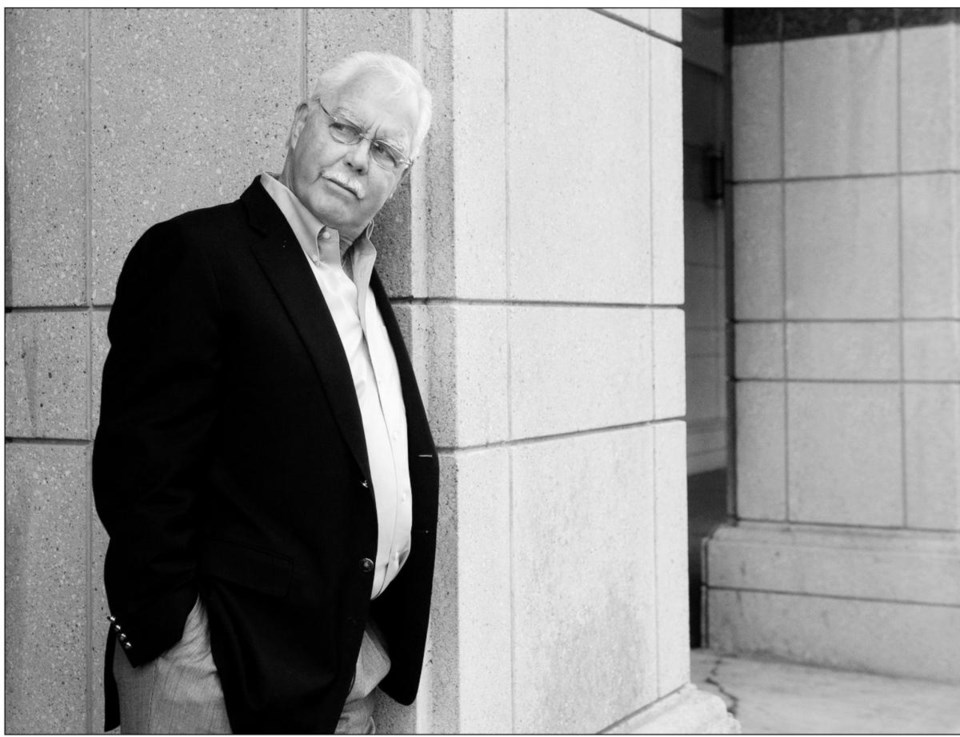Crossing the Line: The Outrageous Story of a Hockey Original
By Derek Sanderson
HarperCollins, 375 pp., $32.95
Derek Sander-son recalls mixing cocktails in a salad spinner. And consuming four bottles of Soave Bolla wine before noon "just to get square."
Then there were the pills and drugs, not to mention the fast women the former Boston Bruins star partied with and the bad men he eventually fell in with.
Hockey's answer to Joe Namath back in the day doesn't shy away from telling his story warts and all in Crossing the Line: The Outrageous Story of a Hockey Original.
There is plenty of good and bad, and more than a little ugly in his life story.
"I'm different," Sanderson sums up matter-of-factly in an interview. "I have found that I really am different. There's nobody like me. And not that it's good or bad."
Written with Kevin Shea, the book is a compelling read. A story that goes from a spur-of-the-moment cash purchase of a Rolls-Royce to sleeping under a bridge and stealing bottles of booze is hard to put down.
Known as the Turk, Sanderson won the Calder Memorial Trophy as the NHL's top rookie in 1967-68. He played for the Bruins, Philadelphia Blazers (WHA), New York Rangers, St. Louis Blues and Vancouver Canucks before ending his NHL career with a brief stop in Pittsburgh in 197778.
In all, he collected 202 goals, 250 assists and 911 penalty minutes in 598 NHL games. In his heyday, he could score, kill penalties and fight.
Away from the ice, the flamboyant Sanderson partnered with Namath in a bar before starting his own string of restaurants. He stepped out with the ladies and would not bat an eye at gathering a group of friends - including three actresses and two Playboy Bunnies - and flying them to Hawaii on the spot.
Sanderson has two earlier books: I've Got to be Me, written with Stan Fis-chler in 1970 and The Derek Sanderson Nobody Knows by Gerald Eskenazi in 1973.
"The arrogance of someone writing an autobiography at 23," Sanderson said of the Fischler book, which he said took 18 hours of his time.
The Eskenazi project took 12 hours.
Shea says Crossing the Line took 90 hours, which shows just how much patience the veteran author has.
The book details Sanderson's long list of injuries and eventual decline, both on and off the ice.
A fear of flying triggered his drinking, for example. Pain in his hips prompted him to take barbiturates to help him sleep, paving the way for a laundry list of drugs.
After a brawl at a Vancouver strip club during the 1977-78 pre-season with the Canucks, he ended up in hospital where tests showed a "ridiculously high" level of alcohol as well as evidence of cocaine, sleeping pills, Seconal and Valium.
Sanderson uses the book to thank many friends and former teammates, Bobby Orr foremost among them, for helping him emerge from the shadows.
Today, he is married with two sons. He has remade his life, serving first as a hockey TV analyst and then learning the investment business.
Having lost much of his hockey earnings - he refuses in the book to even name the now-deceased lawyer who handled his affairs - Sanderson now helps athletes manage their money as vice-president of Baystate Wealth Management. His goal is to prevent today's players from going through what happened to him.
"It's an ugly day when they tell you you're broke," he said.
After 10 hip surgeries, he walks with a limp. He is a survivor of prostate cancer and two heart attacks.
Crossing the Line details Sanderson's beginnings in Niagara Falls, Ont., to life with the Bruins before becoming the world's highest-paid athlete with the World Hockey Association's Philadelphia Blazers.
Sanderson wanted $80,000 US from the penny-pinching Bruins. The Blazers offered him $2.65 million over 10 years.
The move proved to be a disaster. He played just eight games in the WHA and was bought out for $1 million.
Sanderson returned to the Bruins, before moving on to the Rangers and seeing his career self-destruct in the late '70s. He credits a trip to a rehab centre and a special counsellor in St. Catharines, Ont., for getting him sober in 1980.
Sanderson concludes his book is about conquering fear.
"We avoid fear at all costs," he writes. "Your career path is defined by your fears ... Courage is the ability to deal with fear. It took a lot of courage for me to face my demons."
In an interview, he confesses that a more basic motivation behind the book was to pay the university fees for his two sons.
"College costs $58,000," he said.



